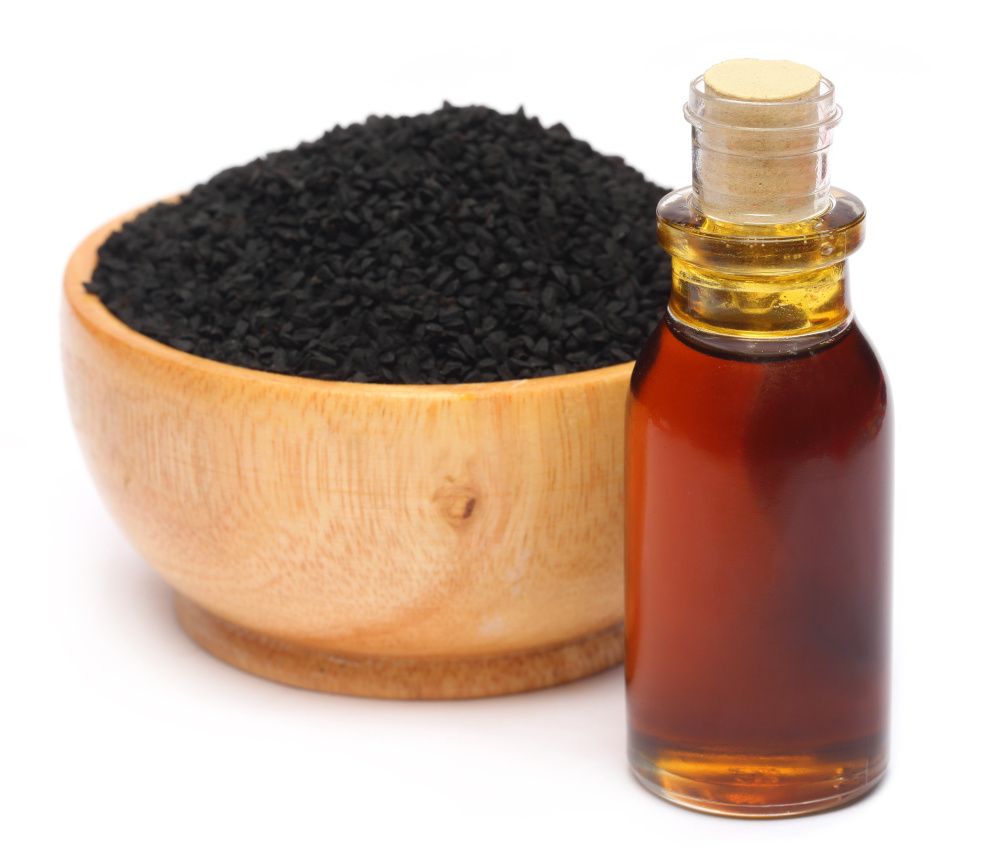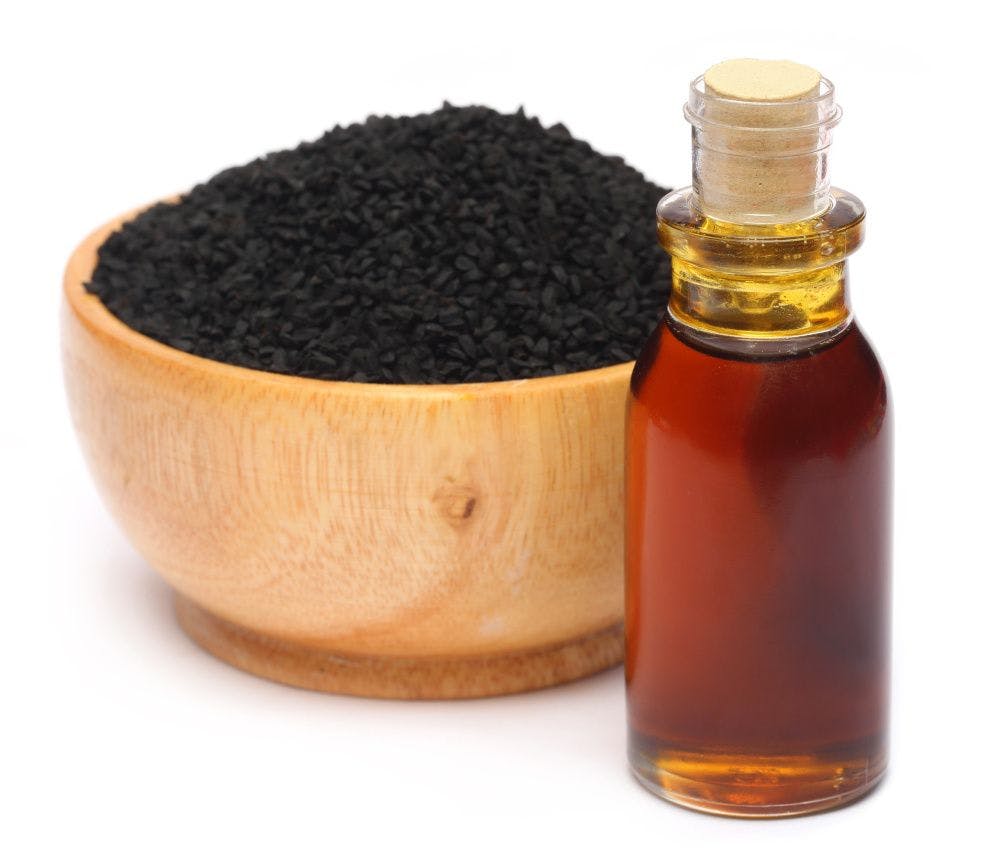Nutritional Outlook’s 2022 Best of the Industry Awards, Ingredient Supplier: TriNutra
TriNutra is devoted to a higher-quality and innovative black seed oil market.
Photo © Swapan – Stock.adobe.com

When Morris Zelkha decides to bring an ingredient to market, he goes all in. Case in point: When Zelkha founded lycopene-ingredients supplier LycoRed Ltd. (Be’er Sheva, Israel) decades ago, he started with what was then a lesser-known ingredient. By the time Zelkha left LycoRed as founder and CEO in 2014, LycoRed was arguably the industry’s best-known lycopene and carotenoids supplier, and lycopene had made a name for itself in the nutrition market. Now, Zelkha is doing the same for black seed oil (Nigella sativa). Just as he did for lycopene, Zelkha is teaching the market about how to identify a high-quality black seed ingredient. And he’s only just begun.
Immediately after departing LycoRed in 2014, Zelkha joined forces with scientists Itschak Lamensdorf, PhD, and Yoram Sela, PhD, both of who had vast experience in the pharmaceuticals industry. Together, they founded black seed company TriNutra Ltd. (Ness Ziona, Israel). At first, TriNutra devoted itself to developing products for the health practitioners’ channel. Its first product was a cognitive-health product called CogniBen.
Companies and consumers might assume that all black seed ingredients are equal in quality. Unsurprisingly, this is not the case. For instance, Zelkha has been vocal about explaining that it is not just a high level of thymoquinone—which is black seed’s main health-promoting active constituent—that determines the effectiveness of a black seed oil ingredient. Rather, companies also need to pay attention to the level of free fatty acid in a black seed ingredient. Free fatty acid forms in black seed oil as a result of oxidation during extraction and processing, and too-high levels of free fatty acid can actually deplete the efficacy of black seed’s thymoquinone.
Unfortunately, there is a wide range in the level of free fatty acid in black seed ingredients currently on the market. So even if companies are touting a high thymoquinone level for their ingredients, the ingredient may still not be utterly effective if its free fatty acid content is too high.
“There is still much education needed on what constitutes a quality black seed oil to the consumer,” says Zelkha. “The importance of understanding the thymoquinone content, full spectrum, and the level of free fatty acid all play crucial roles in the quality and ability of black seed oil.”
He continues: “You can have a high thymoquinone content (over 5%) and high free fatty acid (over 10%), but with this high amount of free fatty acid, most of the thymoquinone benefits are lost. The studies we have done demonstrate how important both levels are to a quality and efficacious black seed oil and the full-spectrum composition.” After all, he points out, full-spectrum oil is what most of black seed’s clinical research focuses on—not just ingredients isolated for thymoquinone content alone.
Photo © Oqba – Stock.adobe.com

TriNutra started studying the marketplace years ago to take stock of the range of black seed quality on shelves. In the beginning, “When analyzing the market qualities, we were shocked at how big the variations were,” Zelkha tells Nutritional Outlook. “Most of the black seed oil products have no thymoquinone content. That is like selling tomato extract without lycopene. We also saw that the thymoquinone content was not added to the label, meaning most of the sales were just oil.” Eventually, he says, companies began listing their products’ thymoquinone content on their labels. “So we analyzed again,” he says, and very recently. “We purchased the top 10 brands selling on Amazon and found there were large gaps between what was printed on the label and the actual amount of thymoquinone; however, the results are still much better than what we found 6-7 years ago.”
TriNutra is devoted to maintaining high standards for its flagship blackseed ingredient, ThymoQuin—which Zelkha describes as “the first standardized cold-press black seed oil and our top-selling product”—and its B’utyQuin black seed oil ingredient for cosmetic products. Among black seed’s most noted benefits are support for fatty liver, sleep and focus, immunity, and stress reduction. For skincare, TriNutra has begun studying B’utyQuin’s ingestible and topical benefits, which may include antioxidant and anti-inflammatory support. Ongoing, the company is investigating black seed oil and immune health, joint health, mitochondrial function, and metabolic health, among other areas.
The company’s ingredients themselves are patented. “TriNutra’s IP-protected and optimal ingredient ratios are formulated with ingredients that are proven to optimize the effectiveness of the product,” Zelkha says. ThymoQuin has also demonstrated higher bioavailability than standard black seed ingredients due to its patented composition that includes sunflower derivatives to improve bioavailability and stability.
The company’s non-GMO seed-breeding program has allowed it to develop a Nigella sativa plant that yields high concentrations of thymoquinone and “that thrives in the Israeli climate and yields 2-3 times the thymoquinone content of other top varieties,” he says. Its controlled cultivation process is also designed to prevent oxidation and minimize rancidity in the seeds so that the ingredient does not lose potency during its shelf life. The company works with NS Oils (Israel) for cultivation and production, with production taking place close to the farms where the seeds are cultivated.
One of the ways TriNutra intends to spread black seed oil awareness is by combining the ingredient with other, well-known nutrition ingredients in the market. The company is actively investigating combinations of its black seed oil with popular ingredients like omega-3 fatty acids, hemp oil, lycopene, lutein, vitamin D, astaxanthin, and Pycnogenol.
“The company’s strategy is based on differentiation,” Zelkha says. “There are over 100 brands on Amazon selling black seed oil, and the consumer is not familiar with the different black seed oil qualities. They are, however, familiar with omega-3, astaxanthin, lycopene, hemp oil, etc. These actives can be the platform to create consumer education on ThymoQuin.” These ingredient combinations, whose synergistic effects the company intends to continue studying, “can open a big market for us, and that’s why we’re focusing on it,” he adds.
Black seed can also inject new life into the market of some of these classic ingredients. For instance, “It’s difficult to come up with a new story about omega-3,” Zelkha says. “The combination with ThymoQuin can create a new story for omega-3 and develop a market that’s not available for omega-3 today.”
In 2022, TriNutra patented some ingredient combinations with ThymoQuin. This October, the company received a U.S. patent for ThymoQuin combined with omega-3 to support healthy inflammatory responses.
The company is also actively investing in and funding health research on its black seed compositions. For instance, in 2022 alone, the company announced newly published studies on its black seed/omega-3 combo that demonstrated gut and immune health benefits in athletes1, and a study on ThymoQuin combined with vitamin D3 which reduced inflammatory biomarkers and upregulated immune response2. Last year, TriNutra also saw beauty studies published on B’utyQuin, including one showing support for skin elasticity, hydration, firmness, and luminosity3, and another showing the ability of B’utyQuin to relieve itchy, flaky, irritated skin and scalp4. Researchers also studied TriNutra’s black seed oil composition as an antimicrobial, especially as an antifungal against Candida albicans and Malassezia furfur.5
Zelkha says TriNutra would like to see overall quality become more consistent in the black seed oil market. To this end, three years ago the company began helping to develop and finance the creation of a USP monograph for black seed oil, which will be released very soon, Zelkha says.
“The monograph covers the full-spectrum black seed oil standardization, which includes 1) thymoquinone minimum of 3%, 2) p-cymene minimum of 1%, 3) carvacrol no more than 0.1%, 4) free fatty acid no more than 2%, and 5) fatty acid profile,” he adds. Of course, TriNutra’s ingredients meet these standards and are now touted as “USP grade,” he says.
The USP monograph will also help strengthen quality throughout the market, he says. “The monograph can help prevent adulteration, bringing black seed oil to a higher global quality standard. This standard can help differentiate the quality of black seed oils on the market, therefore aiding consumers on which product to buy,” he adds.
Zelkha says there is still much work to be done to make black seed oil a household name. But TriNutra is dedicated to the challenge. “Educating the consumer is very costly and takes time,” he says. “We are ready to lead this work but looking to recover our investment,” he adds. “The patents can help to protect our position.”
He says TriNutra’s business is growing 30% each year, so the company appears to be on its way. And if history has shown, if anyone can further an ingredient’s market, it’s Zelkha and now TriNutra.
“Personally,” he says, “I believe that black seed oil can have a market share similar to omega-3. Bringing awareness of the ingredient and educating on quality will help drive this. When looking at Amazon six years ago, there were only about 40 [black seed oil] brands, but today, there are more than 100. I see this as a good step towards growth—but know this is just the beginning.”
References
- Talbott SM et al. “Black cumin seed oil plus fish oil combination modulates gut-immune-axis.” ECronicon Journal, vol. 17, no. 7 (2022): 18-27
- Yeun K et al. “Beneficial effect of 3% thymoquinone on stem-cell-mediated improvement in immune system and anti-inflammatory function.” Journal of Food & Nutritional Sciences, vol. 3, no. 3 (2021): 63-74
- Oppen-Bezalel L. et al. “Mitochondrial revitalization for skin rejuvenation by a proprietary, cold-pressed Nigella sativa seed (black cumin) oil standardized to 3% thymoquinone.” SOFW7days, Published online ahead of print on June 8, 2022
- Oppen-Bezalel, L. von et al. “Irritated, itchy, scaly, seborrheic scalp: Causes and relief with a proprietary, cold-pressed Nigella sativa (Black Seed) oil, standardized to 3% thymoquinone.” SOFW Journal, no. 148 (2022)
- Ogen-Shtern N et al. “Antimicrobial activity by a unique composition of cold pressed Nigella sativa seed (black cumin) oil.” Food Science & Nutrition Research, vol. 4, no. 2 (2021): 1-9




















